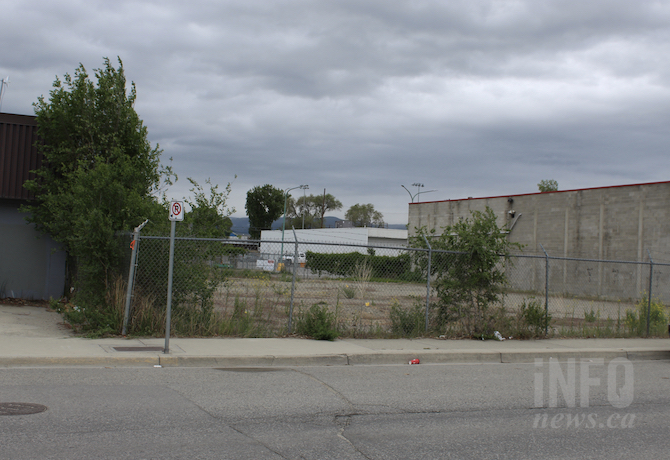Some Kelowna business owners feel unheard with no hearing on supportive housing project
by Rob Munro
A new homeless housing complex destined for Ellis Street in Kelowna’s North End is being launched with no input from the neighbours.
“It’s ridiculous,” M & T Auto Repairs owner Carlos Capela told iNFOnews.ca. “It’s forced. You don’t have a voice.”
The housing will go up on City-owned industrial land – which does not allow for housing – between the former Okanagan Builders site and an industrial plant that has workers inside but no public entrance.
Normally such a project would trigger bylaws requiring a public hearing to gather input from neighbours, but that process was scrapped because of the pandemic, leaving objectors like Capela without a voice. To get around the need to rezone the property, the City is planning to sign a "non-market lease" with B.C. Housing.
"We are working quickly and urgently with our partners to protect all British Columbians during the COVID-19 crisis," Selina Robinson, Minister of Municipal Affairs and Housing said in a news release as an explanation for avoiding the rezoning process.
Just to the north is M & T Auto Repairs that has been there for 30 years. Capela said he used to leave keys in customers' cars for them to pickup. Now he’s had to install a high chain link fence to keep homeless people from wandering through his parking area in these days of COVID-19.
He’s right across the alley from the homeless campground behind the Kelowna Curling Club. He was handed a notice as the homeless people were being moved in last winter and before the fence was installed, came to work an hour early to clean up the garbage. Theft and violence are always a concern, he said.
The other day, he got another notice that 38 supportive housing units will be built and he has no formal opportunity at a public hearing to explain the impacts to city counil.
“It used to be a beautiful park,” Capela said of what is now the campground. “People walked their dogs there. It used to be more of a family place.”
Another nearby business, whose owner did not want his name used out of fear it would damage his business, pointed out that a 13,000-name petition failed to stop a similar project in Rutland last year.
“B.C. Housing has more authority than is necessary,” he said. “I don’t have the energy to fight them.”
But the opposition isn’t universal.
Cheryl Butler, whose Altogether Tax Inc. is right across the street from site, has a different opinion of the process, even though cars are regularly broken into along the street in front of her office.
“I’m of the mindset that they’re trying to do a quick fix,” Butler said. “There’s more complaints about what we’re doing with it (homelessness). We’ve got to get it done as opposed to going through and taking the steps and taking another six months or a year to get approval. I personally don’t mind it.”
Butler is directly involved in providing supportive housing in Kelowna. Currently she has five rooms in her home for people who have mental health challenges and need some support. She’s also the president of Ethos Society for Sustainable Living.
She knows some of the homeless people and will say hello. On the other hand, she has a clear view of the tent campground.
“We watch them every day anyway,” Butler said. “They are definitely entertaining.”
Being next door to the Canadian Diabetes Association office means she and her staff get to see homeless people dropping by the association’s donation box to try on new outfits.
She said the location of the supportive housing is good, given that it’s an industrial area away from homes but near to services for the homeless.
The City's agreement with B.C. Housing, which goes to council for ratification today, May 25, will allow the modular housing to be occupied for up to 10 years. If it's needed after that, the land will have to be rezoned.
Signage about the change won’t go onto the site until later in May with work starting in June. A neighbourhood information session won’t be held until the summer with the project set to open in the fall.